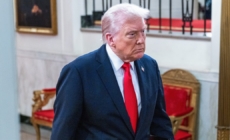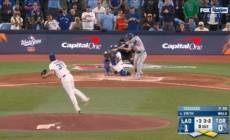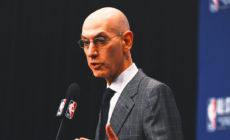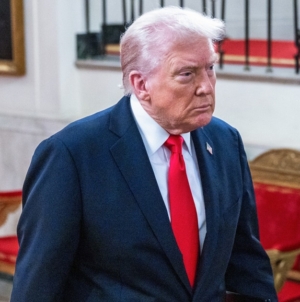-
College Football Week 9 Picks, Preview: What to Expect in UCLA-Indiana, More - 7 mins ago
-
Trump heads to Asia with trade — and tensions with Xi — on the agenda - 9 mins ago
-
Drugs, crime and homelessness plague MacArthur Park. Can a fence rescue it? - 27 mins ago
-
Aldrich Potgieter, Who Mirrored Tiger Woods, Withdraws After Food Poisoning - 32 mins ago
-
New phishing scam targets university staff payroll to steal paychecks - 38 mins ago
-
Will Smith drives in run, extending Dodgers' lead over Blue Jays - 50 mins ago
-
Doctor who walked L.A.’s perimeter has a prescription: Escape your own neighborhood - about 1 hour ago
-
Black Labrador Living the WaveRunner Dream Wins ‘Pet of the Week’ - about 1 hour ago
-
NBA Commissioner ‘Deeply Disturbed’ By Gambling Arrests of Billups, Rozier - 2 hours ago
-
California euthanizes 4 gray wolves following cattle kills - 2 hours ago
Map Shows States Where Sports Betting is Legal After Major NBA Arrests
Portland Trailblazers head coach Chauncey Billups and Miami Heat star Terry Rozier are among more than 30 people arrested by authorities in two gambling investigations that have shaken up the world of NBA.
The crackdown—which has to do with sports betting as much as allegedly rigged, illegal poker games—has resurfaced a debate over what role gambling should play in sports.
When Did Sports Betting Become Legal In The U. S.—And Where?
Until 2018, sports betting was illegal in much of the country under the Professional and Amateur Sports Protection Act of 1992, with the exception of a handful of states—most notably Nevada. Those who sought to bet on sports had to do so under the table, in the so-called black market.
Everything changed when, on May 14, 2018, the Supreme Court ruled to strike down the 1992 law, allowing each individual state to decide whether to make sports betting legal or not. In the past three decades, the sports betting market has boomed, thriving into an industry which made nearly $14 billion in revenues last year, according to ESPN data, up from $11 billion in 2023.
Much of this recent growth is due to the rise of online sports bets. American Gaming Association’s (AGA) vice president of research David Forman said during the company’s annual call in February: “These past few years have reshaped the industry, and the revenue pie, while it’s much bigger, looks very different than it used to. That’s increasingly driven by new online gaming options available to more people than ever before.”
A majority of states have made sports betting legal since 2018, with the exception of 11. These include Alabama, Alaska, California, Georgia, Hawaii, Idaho, Minnesota, Oklahoma, South Carolina, Texas, and Utah.
Why Have Some States Refused To Make Sports Betting Legal?
Sports betting has been a very contentious issue in the U.S, and it remains illegal in several states—with California and Texas standing out as the biggest markets where the practice is not allowed.
There have been attempts to turn the situation around. In 2022, California saw a two-pronged effort to make sports betting legal with tribe-led Proposition 26 and commercial-led Proposition 27, which would have permitted retail and online betting in the Golden State, respectively. But the two ballot initiatives, which were somehow muddled with other issues like homelessness, failed that same November, when a majority of voters rejected them.
The Texas legislature made gambling—including on sports results—illegal in 1903 to avoid social vices such as physical abuse and gunfights, believed to stem from such activity. Though there have been efforts to make sports betting legal in the state, they have so far failed.
While there is a growing movement promoting the legalization of sports betting in the state, such as the Texas Sports Betting Alliance (TSBA)—which include the Houston Astros, Dallas Cowboys, Austin FC, and the Texas Motor Speedway—lawmakers have not proven keen to change the legislation around it.
“I’ve said repeatedly there is little to no support for expanding gaming from the Senate GOP,” Lieutenant Gov. Dan Patrick said in a post on X in 2023. “I polled members this week. Nothing changed. The Senate must focus on issues voters expect us to pass. We don’t waste time on bills without overwhelming GOP support.”
This does not mean that Californians and Texans do not find loopholes to bet on sports anyway—or that they are not interested in it. GeoComply, a company which provides fraud and cybersecurity solutions, recorded more than 1.48 million attempts to visit legal sportsbooks from Texas in November 2024, up 87 percent from a year earlier.
What Do Americans Think Of Sports Betting?
Americans’ concern for sports betting is growing as the phenomenon grows. A survey released earlier this month by the Pew Research Center found that 43 percent of U.S. adults think that the fact that sports betting is legal is a bad thing for society, up from 34 percent in 2022. Another 40 percent think it is a bad thing for sports, up from 33 percent in 2022.
Within the same time frame, the number of Americans who have bet money on sports has stayed the same.
But a recent study by the University of California San Diego Qualcomm Institute and School of Medicine has revealed what has been the impact of legalizing sports betting on Americans—showing a dramatic increase in sports betting and gambling addiction help-seeking (23 percent) since 2018.
“When the Supreme Court legalized sportsbooks—a venue where people can wager on various sports competitions—in Murphy v. NCAA, public health experts paid little attention,” said the study’s senior author John W. Ayers, Ph.D, vice chief of innovation in the Division of Infectious Disease and Global Public Health, deputy director of informatics at UC San Diego Altman Clinical and Translational Research Institute (ACTRI), and Qualcomm Institute scientist.
“Now, sportsbooks have expanded from a single state to 38 states, with hundreds of billions of wagers, mostly online, coinciding with record-breaking demand for help with gambling addiction as millions seek help.”
“Sports betting has become deeply embedded in our culture,” said Matthew Allen, a third-year medical student, in the study. “From relentless advertising to social media feeds and in-game commentary, sportsbooks are now everywhere. What was once a taboo activity, confined to the fringes of society, has been completely normalized.”
What Do We Know About The NBA Arrests
Crucially, dozens of professional and collegiate athletes, as well as their coaches, have been handed sanctions for sports betting violations since 2018—with the NBA arrests representing the latest scandal to hit the world of U.S. sports.
One case alleges that six defendants, including Rozier, used insider information and in some cases altered their performances—by allegedly faking an injury, in Rozier’s case—to manipulate bets worth hundreds of thousands of dollars.
Rozier, who was detained at a hotel in Orlando, appeared in a federal court in the Florida city on Thursday afternoon, after which he was released after putting up his $6 million Florida home as bond collateral. His lawyer, Jim Trusty told reporters that his client had a “great case” and never faked an injury or tipped off anyone about it, as prosecutors allege he did following a March 2023 game.
“He had a bunch of people that he appropriately confided in, and he had an injury, and he didn’t play another game,” Trusty said, according to NBC.
The other case alleges that 31 defendants, including Billups, took part in rigged, illegal poker games backed by alleged mafia family members, scamming people out of millions of dollars. Billups and Rozier have both been placed on leave, according to the NBA. Alleged members of prominent mafia families in New York have also been arrested.
Billups appeared at an Oregon court on the same day as Rozier. His attorney Chris Heywood arranged for his release on conditions that he turn over his passport to the government, secure a bond, restrict his travel to Oregon and Colorado, and refrain from gambling or contacting his co-defendants, The Oregonian/OregonLive reported. Billups is also prohibited from having contact with his co-defendants. He is due to appear at the federal courthouse in Brooklyn, New York, on November 24.
“The conditions are standard and common in allegations like this,” Heywood told the newspaper. “Folks shouldn’t draw any conclusions from this.”
Newsweek contacted Trusty and Heywood for comment by email on Friday morning.
The NBA said in a statement that it took the allegations “with the utmost seriousness and the integrity of our game remains our top priority.”
Talking about what he described as a “mind-boggling” scheme on Thursday, FBI director Kash Patel said at a press conference: “Today, we are here in New York to announce a historic arrest across a wide sweeping criminal enterprise, This is an illegal gambling operation and sports rigging operation that spanned the course of years.”
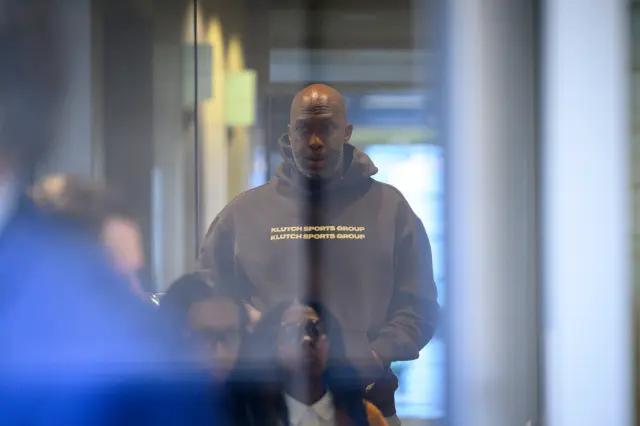
Defendants, which include “over 30 individuals,” are facing charges including wire fraud, money laundering, extortion, robbery and illegal gambling, according to Patel.
“We’re talking about tens of millions of dollars in fraud and theft and robbery,” he said.
We do not yet know how each defendant is pleading to the charges, or who the victims of the alleged illegal schemes are.
Source link

